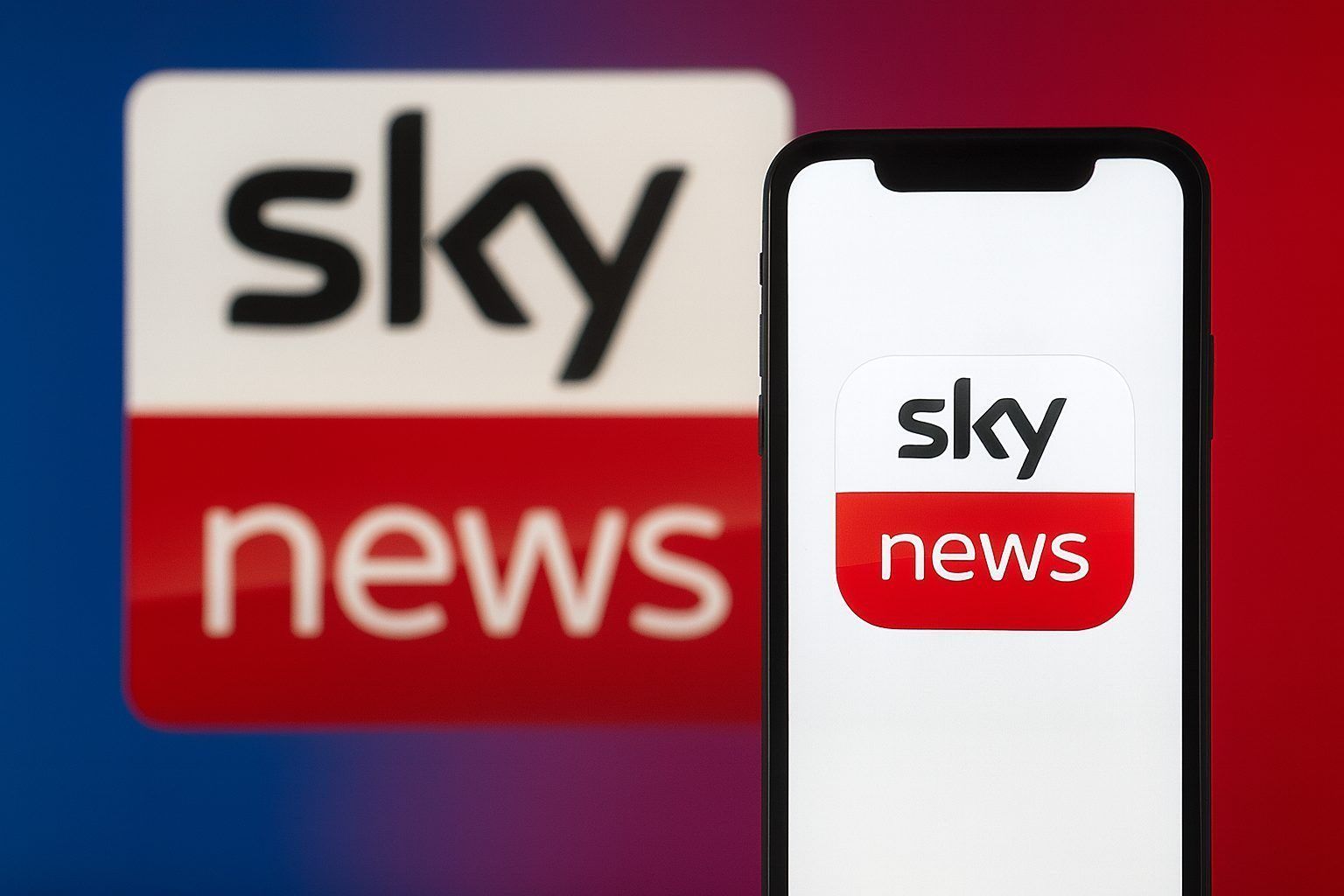Chancellor Rachel Reeves will today deliver her second Budget, setting out billions in tax rises and benefit changes that will touch almost every UK household. With a fiscal hole estimated at £20–30bn, high inflation and rising borrowing costs, this is shaping up to be one of the most consequential tax-and-spend statements in years. Sky News+2The Independent+2
Below is a rundown of what’s already confirmed, what’s widely expected later today (26 November 2025), and what financial advisers are most worried about – especially around pensions and tax‑free cash.
When is the 2025 Budget and why does it matter?
Rachel Reeves will stand up in the House of Commons at around 12:30pm today (Wednesday 26 November 2025) to deliver the Autumn Budget. It’s her second Budget, but the first since markets and voters have fully absorbed Labour’s new fiscal rules – including a commitment to get debt falling by 2030 without raising the main rates of income tax, National Insurance or VAT. Sky News+1
That pledge not to raise headline tax rates is why so much attention is now on “stealth” tax measures – freezes, allowances, thresholds and one‑off levies – rather than simple rate hikes.
What’s already confirmed before Budget day?
Even before Reeves opens her red box, several concrete measures have been announced by ministers and briefed by the Treasury.
1. National Living Wage and minimum wage rises
- The national living wage for workers aged 21+ will increase by 4.1%, to £12.71 an hour next year.
- Rates for 18–20‑year‑olds will rise by 8.5%, to £10.85 an hour. The Independent+1
For full‑time workers this is worth hundreds of pounds a year – but, as we’ll see, more of that pay rise is likely to be dragged into tax.
2. State pension and benefits uprating
The government is expected to reaffirm the triple lock and deliver an above‑inflation increase in the state pension from April, worth roughly £550 a year to around 13 million pensioners. Working‑age benefits are also due to be uprated in line with inflation, at an estimated cost of about £6bn. Sky News+1
3. Sugar tax expansion, tourist taxes and NHS spending
Several consumption and lifestyle‑related measures are already locked in:
- The sugar tax will be extended to cover pre‑packaged milkshakes and some lattes. The Independent+1
- Mayors in England will gain powers to introduce a “tourist tax” on overnight stays in their cities. Sky News+1
- NHS prescription charges and rail fares will be frozen next year – the first rail fare freeze in around three decades. Sky News+1
- Around £300m will be invested in NHS technology, aimed at cutting waiting lists by automating admin and upgrading systems. Sky News+1
4. Other early announcements
Additional pre‑Budget moves include:
- Maintaining the 5p cut in fuel duty for another year. Sky News
- Extending the Electric Car Grant for an extra year, typically worth £3,750 off the purchase price of qualifying vehicles. Sky News
- Funding of £5m to refresh secondary school libraries. Sky News
These measures sit alongside Reeves’ central message: no return to formal “austerity”, but a Budget that still leans heavily on tax rises to fund welfare and public services. MoneyWeek+1
The big tax changes expected later today
Most of the drama today will come from new tax and allowance changes that have been heavily trailed by the Treasury and reported across multiple outlets.
Important: At the time of writing (morning of 26 November), these items are expected and widely briefed, but not yet formally announced in the Commons. Final details could differ once the Chancellor finishes her speech.
1. Income tax threshold freeze extended to 2030
Reeves is widely expected to extend the freeze on income tax thresholds for two extra years beyond 2028, dragging the freeze out to 2030. Sky News+2The Independent+2
Because thresholds stay fixed while wages rise, more people:
- start paying income tax at all, and
- are pulled into higher tax bands (“fiscal drag”).
Estimates suggest this could raise around £7.5–8bn a year by the end of the Parliament – making it one of the single biggest revenue‑raisers in the Budget. ITVX+1
For workers who have just been given that 4.1% minimum wage increase, this freeze means more of each extra pound is taxed than if thresholds had risen with inflation.
2. Cash ISA limit cut from £20,000 to £12,000
A headline change for savers is likely to be a cut to the annual tax‑free limit on cash ISAs, from £20,000 to £12,000 a year. The Independent+2The Independent+2
According to briefings:
- The move is designed to push more households to invest via stocks and shares ISAs, supporting the UK stock market. The Independent+1
- Some reports suggest the overall ISA allowance may stay at £20,000, but with tighter rules on how much of that can sit in cash – though the precise structure will only be clear after the speech.
For cautious savers who prefer cash, this could limit how much they can shelter from tax each year, while nudging them toward investment products that carry greater risk.
3. Salary sacrifice clampdown
Another key expectation is a cap on the tax advantage of salary sacrifice schemes:
- Reports suggest Reeves could limit the amount that can be sheltered via salary sacrifice to around £2,000 a year before National Insurance kicks in. The Independent+1
- This would hit higher earners who use salary sacrifice heavily for pension contributions, electric company cars and other benefits.
Critics argue this risks undermining pension saving at a time when the government says it wants people to invest more for retirement.
4. “Mansion tax” and new property levies
Property owners at the top end of the market look set to be targeted:
- A new levy on homes worth more than £2m – dubbed a “mansion tax” – is expected to affect roughly 100,000 of Britain’s most expensive properties, potentially raising £400–450m a year. The Independent+1
- The Treasury is also exploring a shift away from traditional stamp duty toward a “national property tax” on expensive homes (above around £500,000), paid by buyers on the portion above that threshold. The Independent+1
For owners and would‑be buyers of high‑value London and South East properties, this could mean higher annual costs or bigger one‑off tax bills when they move.
5. Electric vehicle (EV) road charge and other transport taxes
As petrol and diesel cars phase out, Reeves is expected to start replacing lost fuel duty with a per‑mile tax on electric vehicles, potentially around 3p per mile. The Independent+1
Other transport‑related ideas being floated include:
- Introducing 20% VAT on taxi journeys, bringing them fully into line with other services. ITVX
- Continuing the fuel duty freeze, meaning drivers of petrol and diesel cars will not see a hike there this year. Sky News+1
The net effect: EV running costs would rise, while fossil‑fuel driving remains protected in the short term.
6. Scrapping the two‑child benefit cap
One of the most politically charged moves on the table is the scrapping of the two‑child limit on child tax credit and Universal Credit. Sky News+1
Currently, most families can only receive the child‑related element of Universal Credit for their first two children. Sky News analysis highlights that around 1.6 million children – roughly one in nine – are affected by the cap, with charity research suggesting that removing it could lift hundreds of thousands of children out of poverty. Sky News
Campaigners have been pressing Reeves to act, while critics ask how such a move would be funded alongside other spending pledges.
7. Pensions: tax‑free lump sum fears and “no‑go” zones
Perhaps the most sensitive area for long‑term savers is pensions – and particularly rumours that the 25% tax‑free lump sum available at retirement could be cut.
An FTAdviser survey of financial advisers found that almost 90% are “very concerned” the tax‑free pension lump sum will be reduced in this week’s Budget, and around half report that clients are delaying decisions until after the statement. FT Adviser
At the same time, commentators and consumer groups are warning that:
- Constant tinkering with pension rules erodes trust in long‑term saving.
- Any sudden cut to tax‑free cash, without generous protections, could feel like moving the goalposts on people who saved under the current rules.
Reeves has sent mixed signals here: she wants to boost investment and long‑term saving, but also needs revenue. Until she speaks, the future of the tax‑free lump sum remains one of the biggest unknowns of the day.
How today’s moves could hit different groups
Workers and employees
- The 4.1% minimum wage rise offers some relief from the cost of living.
- But the extended income tax threshold freeze means more workers – especially those on middle incomes – will gradually shift into higher tax bands even if their living standards barely improve. The Independent+1
- If salary sacrifice for pensions and benefits is capped, higher and upper‑middle earners will lose a valuable tax‑efficient planning tool, and may need to revisit how they structure bonuses and benefits.
Savers and investors
- Cash‑heavy savers who like the simplicity and safety of cash ISAs may be forced to limit how much they shelter each year, or accept that more interest will be taxable. The Independent+1
- Those willing to invest may see more incentive to use stocks and shares ISAs – but market investments can fall as well as rise, and carry higher risk.
- For wealthier households using ISAs alongside pensions and other wrappers, the Budget looks set to nudge tax‑efficient wealth‑building further toward market risk.
Homeowners and landlords
- Owners of high‑value properties (especially above £2m) could face a new recurring “mansion tax”‑style bill, plus possible reforms to how property transactions are taxed. The Independent+1
- Any move toward a national property tax, especially if tied to revaluations of higher council tax bands, could increase annual costs for affluent households even if headline council tax rates don’t change dramatically.
Families on lower incomes
- If the two‑child cap is scrapped, larger low‑income families could see a meaningful uplift in monthly Universal Credit, helping with essentials such as food, energy and rent. Sky News+1
- At the same time, broader tax rises and continued pressure on living costs mean overall gains may be modest for many households once everything is netted off.
Pension savers
- Rumours around the tax‑free lump sum are already prompting some people to rush or delay retirement decisions, which advisers warn may not be wise until the details are clear. FT Adviser
- Any restriction on salary sacrifice could reduce the attractiveness of extra pension contributions, particularly for higher earners who currently rely on this to manage their tax bills.
Non‑advised Brits: a growing advice gap
One striking theme emerging around this Budget is how complex the personal finance system has become.
Recent FTAdviser coverage warns of an “urgent need for financial support for non‑advised Brits”, with analysis from consultancy EV arguing that people who don’t have a financial adviser either need easier access to advice or better, more targeted guidance and tools to navigate big decisions on pensions, ISAs and property. FT Adviser+1
With today’s Budget layering on:
- frozen thresholds,
- targeted levies, and
- intricate changes to wrappers like ISAs and pensions,
the risk is that only those with time, knowledge or professional help fully understand how to respond.
Live Q&As and where to get answers today
Recognising that confusion, several outlets are running live Budget Q&As.
The Independent is hosting an “Ask Me Anything” session with personal finance creator Gabriel Nussbaum (“That Money Guy”), who will be answering reader questions on tax, ISAs, National Insurance, pensions, property and savings in the wake of the Budget. The Independent+1
These kinds of sessions can’t replace tailored financial advice, but they do help decode the jargon and show how measures might play out for typical households.
Five practical steps to consider (without panicking)
While we won’t know the final shape of the Budget until later today, there are some sensible, low‑regret actions you can think about now:
- Don’t rush big decisions before the detail lands
If you’re on the verge of taking a pension lump sum, moving house or shifting large ISA balances, consider waiting until the full Budget documents and expert commentary are available, unless there’s an urgent reason to act. - Stress‑test your budget for higher effective taxes
With the income tax threshold freeze and possible new levies, assume your net pay may not stretch as far over the next few years – even if your salary rises. Build a margin into your monthly budget where possible. - Review your savings mix
If you hold significant cash in ISAs, start thinking about whether a mix of cash and investments still suits your goals and risk tolerance. You don’t have to change anything today, but you do want a plan if the cash ISA limit falls. - Check your pension contributions and benefits
Understand how much you currently contribute, what tax relief you receive, and whether your employer uses salary sacrifice. If caps are introduced, you may need to tweak contributions later – ideally with professional input. - Seek help if you’re unsure
Today’s changes will be complex. If you can, speak to a regulated financial adviser or a free, reputable guidance service such as MoneyHelper once the Budget is published. For quick explanations, look for trusted media Q&As and fact‑checks rather than social‑media rumours.
The bottom line
Whatever the final details, 26 November 2025 will mark a turning point for UK tax and personal finance:
- Workers are likely to feel squeezed by wage rises on one side and frozen thresholds on the other.
- Savers face incentives to take more investment risk if they want to stay tax‑efficient.
- Homeowners and landlords, especially at the top end of the market, are staring at new property‑based taxes.
- Families and pensioners may get targeted help through benefit and state pension increases – but with strings attached elsewhere.
This article is based on morning coverage on 26 November 2025 from Sky News, The Independent, ITV, FTAdviser and other outlets. The Independent+4Sky News+4The Independent…
Once Rachel Reeves sits down this afternoon, the numbers will be fixed – but the hard work of re‑planning household finances for a new tax landscape will only just be starting.
Disclaimer: This article is for general information only and does not constitute personal financial advice. Consider speaking to a regulated adviser before making major decisions about savings, investments or pensions.









